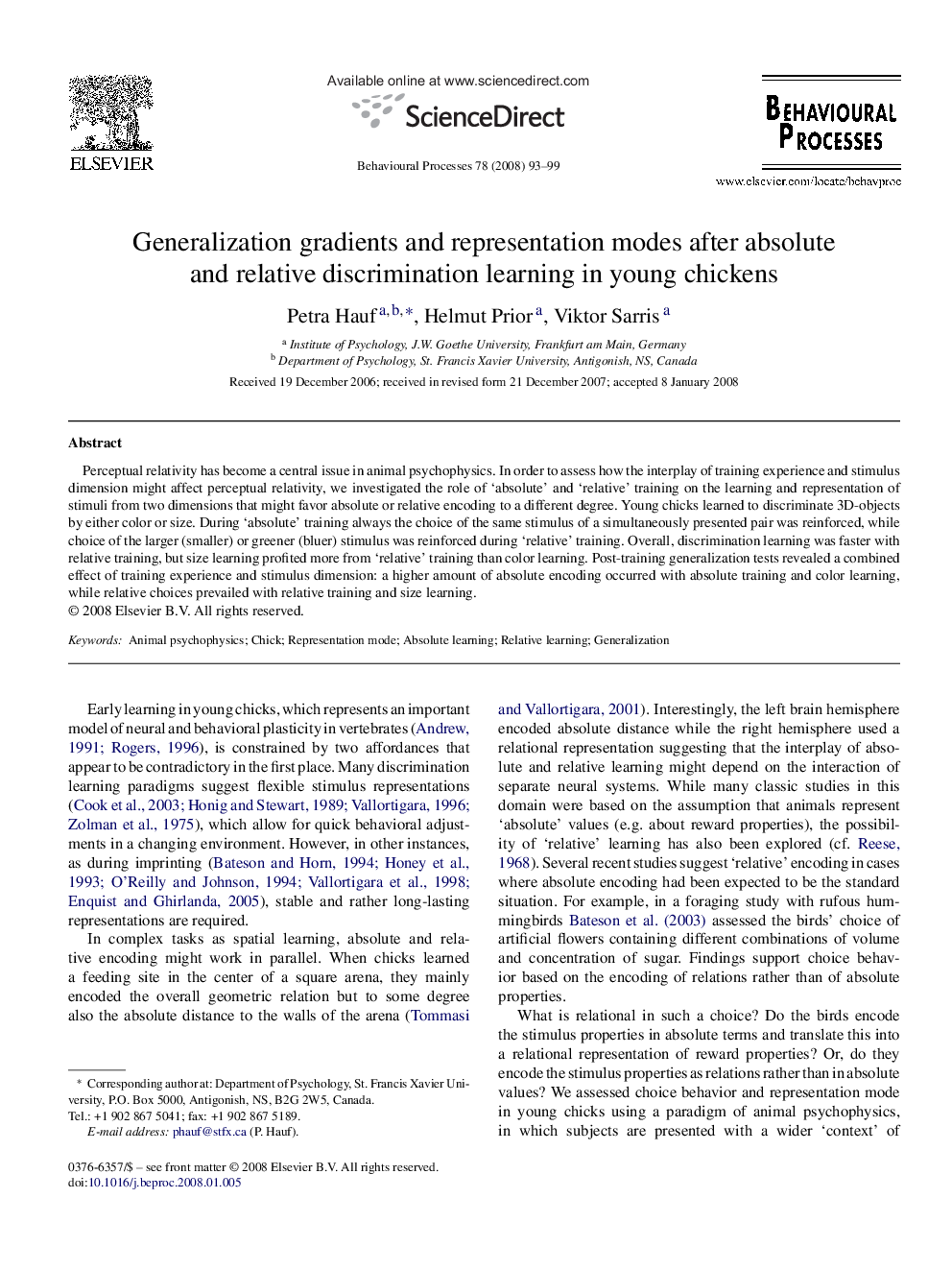| Article ID | Journal | Published Year | Pages | File Type |
|---|---|---|---|---|
| 2427597 | Behavioural Processes | 2008 | 7 Pages |
Perceptual relativity has become a central issue in animal psychophysics. In order to assess how the interplay of training experience and stimulus dimension might affect perceptual relativity, we investigated the role of ‘absolute’ and ‘relative’ training on the learning and representation of stimuli from two dimensions that might favor absolute or relative encoding to a different degree. Young chicks learned to discriminate 3D-objects by either color or size. During ‘absolute’ training always the choice of the same stimulus of a simultaneously presented pair was reinforced, while choice of the larger (smaller) or greener (bluer) stimulus was reinforced during ‘relative’ training. Overall, discrimination learning was faster with relative training, but size learning profited more from ‘relative’ training than color learning. Post-training generalization tests revealed a combined effect of training experience and stimulus dimension: a higher amount of absolute encoding occurred with absolute training and color learning, while relative choices prevailed with relative training and size learning.
